Lawyers argue prosecution of Julian Assange is ‘state retaliation’ in last-ditch bid to halt extradition
The WikiLeaks founder’s wife told supporters outside court: “They just cannot get away with this. Julian needs his freedom and we all need the truth.”
Your support helps us to tell the story
From reproductive rights to climate change to Big Tech, The Independent is on the ground when the story is developing. Whether it's investigating the financials of Elon Musk's pro-Trump PAC or producing our latest documentary, 'The A Word', which shines a light on the American women fighting for reproductive rights, we know how important it is to parse out the facts from the messaging.
At such a critical moment in US history, we need reporters on the ground. Your donation allows us to keep sending journalists to speak to both sides of the story.
The Independent is trusted by Americans across the entire political spectrum. And unlike many other quality news outlets, we choose not to lock Americans out of our reporting and analysis with paywalls. We believe quality journalism should be available to everyone, paid for by those who can afford it.
Your support makes all the difference.The United States’ bid to prosecute Julian Assange is “state retaliation” and he is at risk of a “flagrant denial of justice” if he is extradited to face spying charges, a court has heard.
In a last-ditch bid to stop the WikiLeaks founder from being extradited, lawyers told two High Court judges that his prosecution in the US is retribution for his political opinions.
It is feared Mr Assange, 52, could be put on a flight to the US “within days” to face espionage charges over the publication of hundreds of thousands of leaked documents relating to the Afghanistan and Iraq wars.
He could face up to 175 years in prison if convicted for publishing the classified documents – which his team described as “ordinary journalistic practice” of publishing information of “important public interest”.
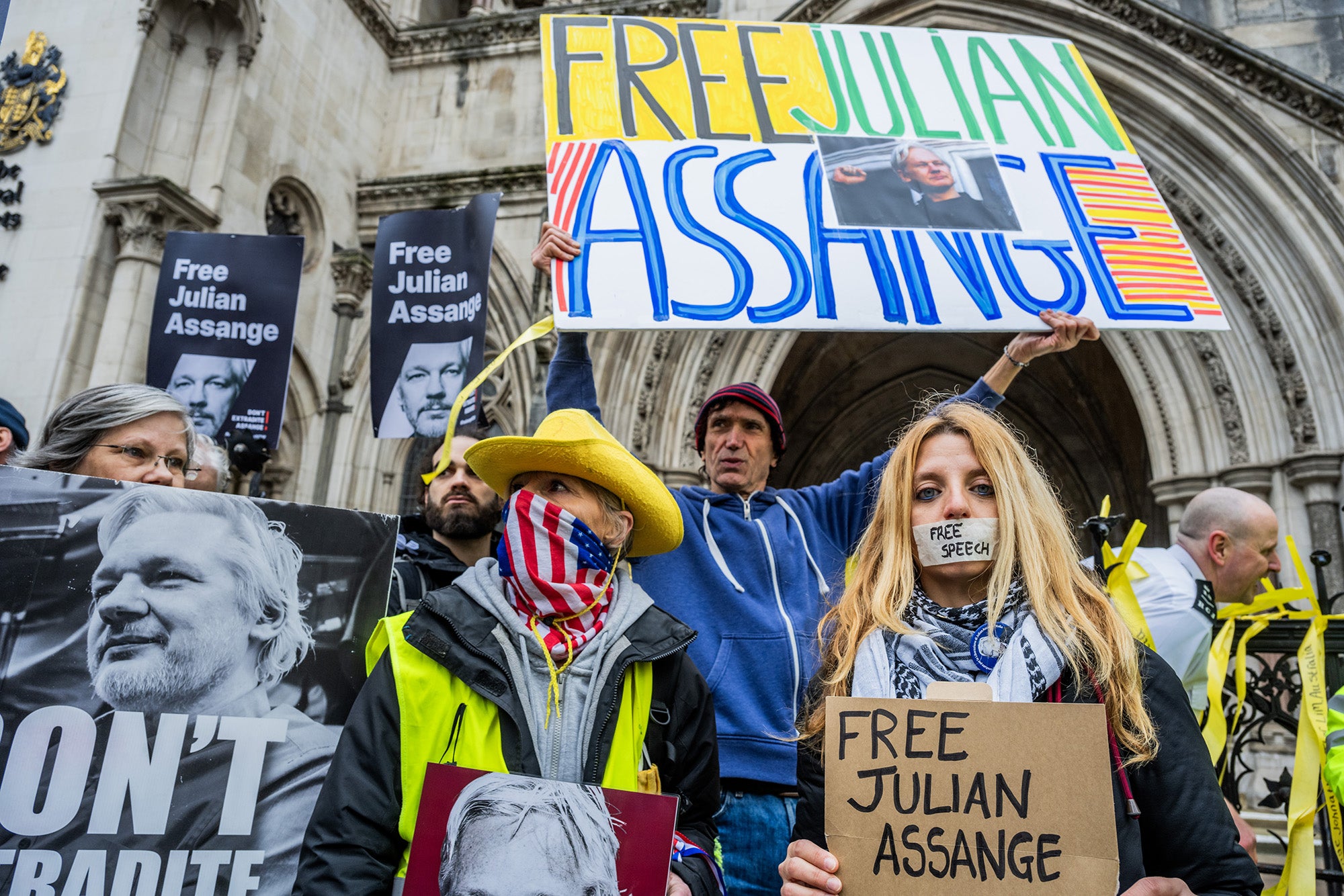
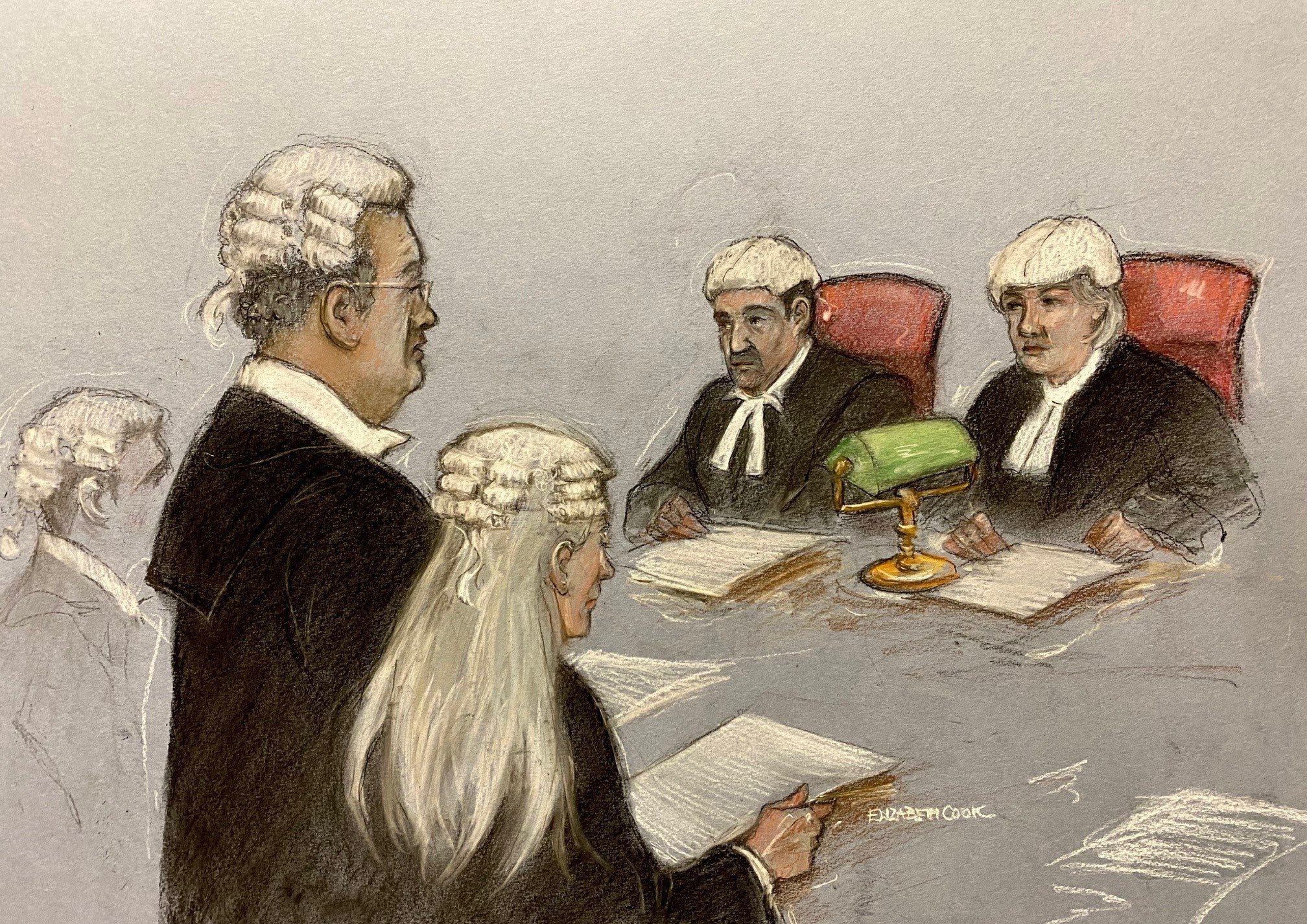
The hearing comes after US authorities successfully overturned a 2021 ruling in which a UK judge denied the extradition request, concluding there was a real and “oppressive” risk of him dying by suicide if he is sent to the US – while ruling against the 52-year-old on all other issues.
Lawyers for Mr Assange are now asking for the go-ahead for a full appeal challenging the original judge’s dismissal of other parts of his case in last ditch bid to prevent his extradition.
If the bid fails, the only route left is for Mr Assange to apply to the European Court of Human Rights for a Rule 39 order to stop his flight.
Hundreds of supporters, including his wife Stella Assange and former Labour leader Jeremy Corbyn, gathered outside the Royal Courts of Justice at the start of a two-day hearing on Tuesday.
Ahead of the hearing, Ms Assange told the crowd: “They just cannot get away with this. Julian needs his freedom and we all need the truth.”
Although the WikiLeaks founder, who is being held in high security HMP Belmarsh in south-east London, was granted permission to attend court - he was too unwell to come.
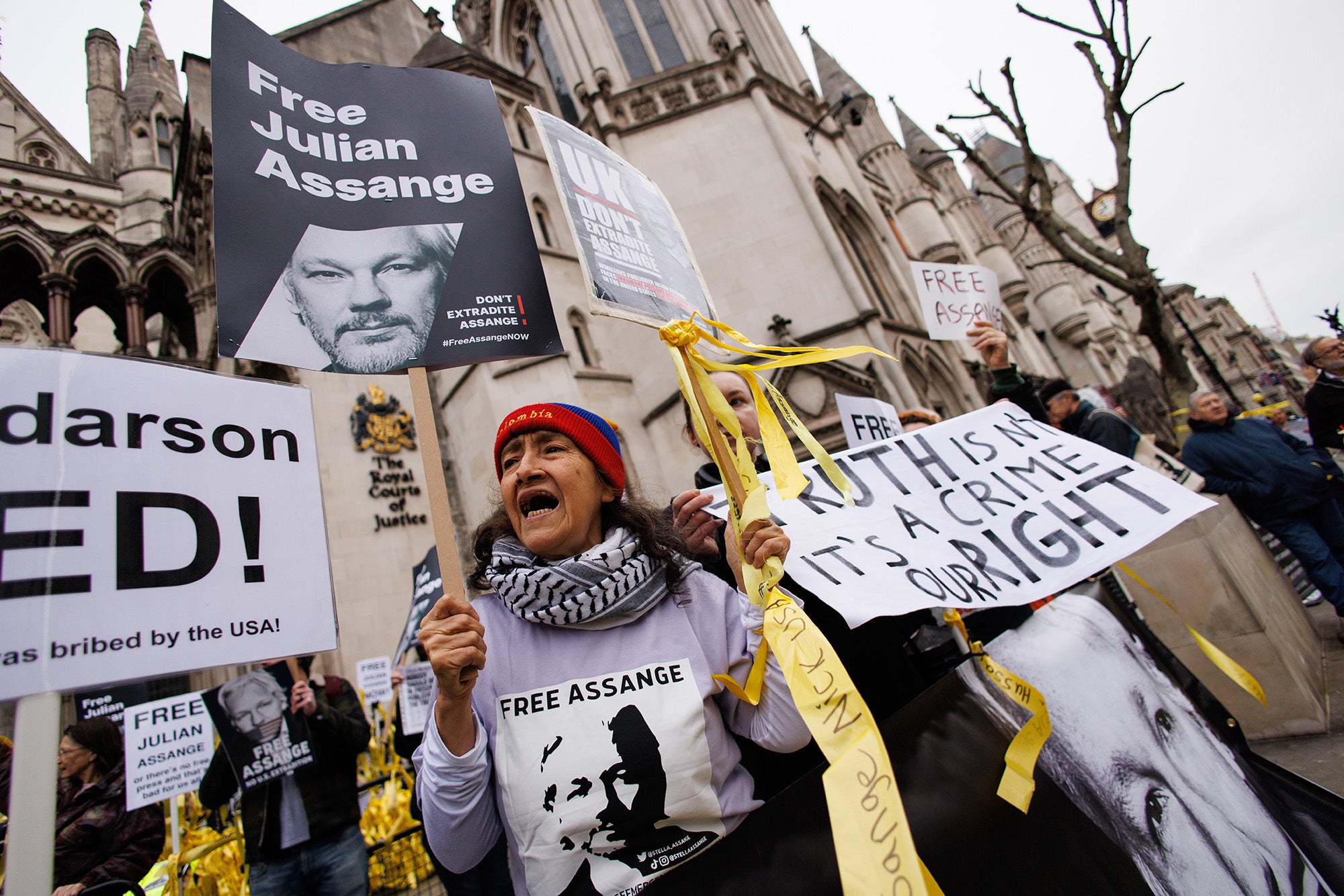
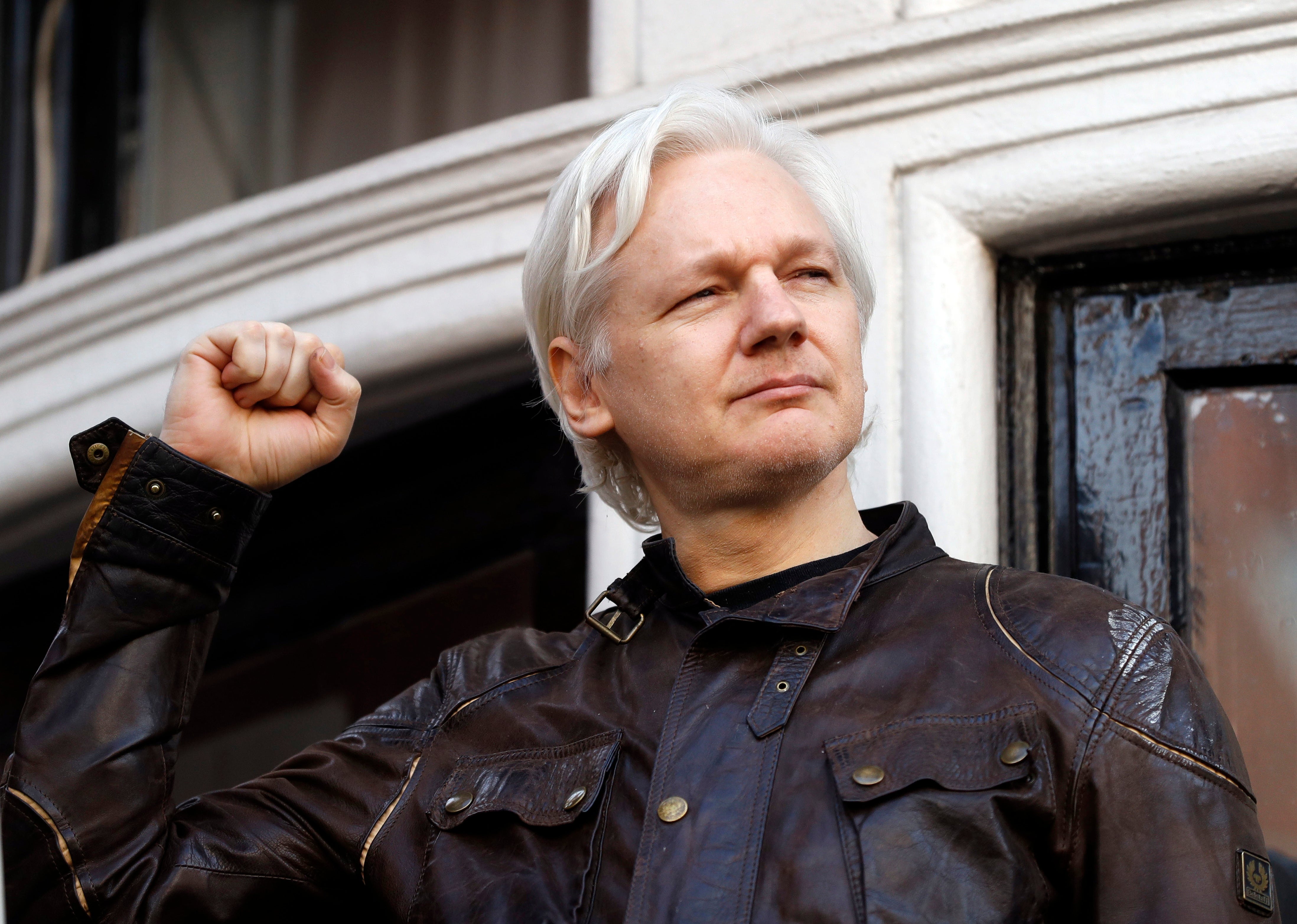
Mark Summers KC told judges Dame Victoria Sharp and Mr Justice Johnson that the US prosecution of Mr Assange would be retribution for his political opinions, meaning it would be unlawful to extradite him under UK law.
The barrister said: “This is a paradigm example of state retaliation for the expression of political opinion. The district judge did not address it, had she done so, it would have been fatal to her decision.”
In written submissions, Mr Summers and Edward Fitzgerald KC, also for Assange , added: “The evidence showed that the US was prepared to go to any lengths, including misusing its own criminal justice system, to sustain impunity for US officials in respect of the torture/war crimes committed in its infamous ‘war on terror’, and to suppress those actors and courts willing and prepared to try to bring those crimes to account.
“Mr Assange was one of those targets.”
Mr Summers later told the High Court in London that the US authorities had developed a “breathtaking” plan to either kill or kidnap Mr Assange while he was offered asylum in the Ecuadorian embassy, where he remained for around seven years.
The barrister later said the plan “only fell apart when the UK authorities weren’t very keen on the thought of rendition, or a shootout, in the streets of London”.
The lawyers also argued that Mr Assange is being prosecuted for an “ordinary journalistic practice”.
Mr Fitzgerald told the court: “He is being prosecuted for engaging in ordinary journalistic practice of obtaining and publishing classified information, information that is both true and of obvious and important public interest.”
The barrister described the case as a “legally unprecedented prosecution” and said that the 52-year-old faced a “real risk he will suffer a flagrant denial of justice” if he was extradited.
In written submissions, Mr Fitzgerald added that if he were extradited, Mr Assange would face a trial with “tainted evidence” and jurors who are “prejudiced irretrievably by public denunciations of him made by the President downwards”.
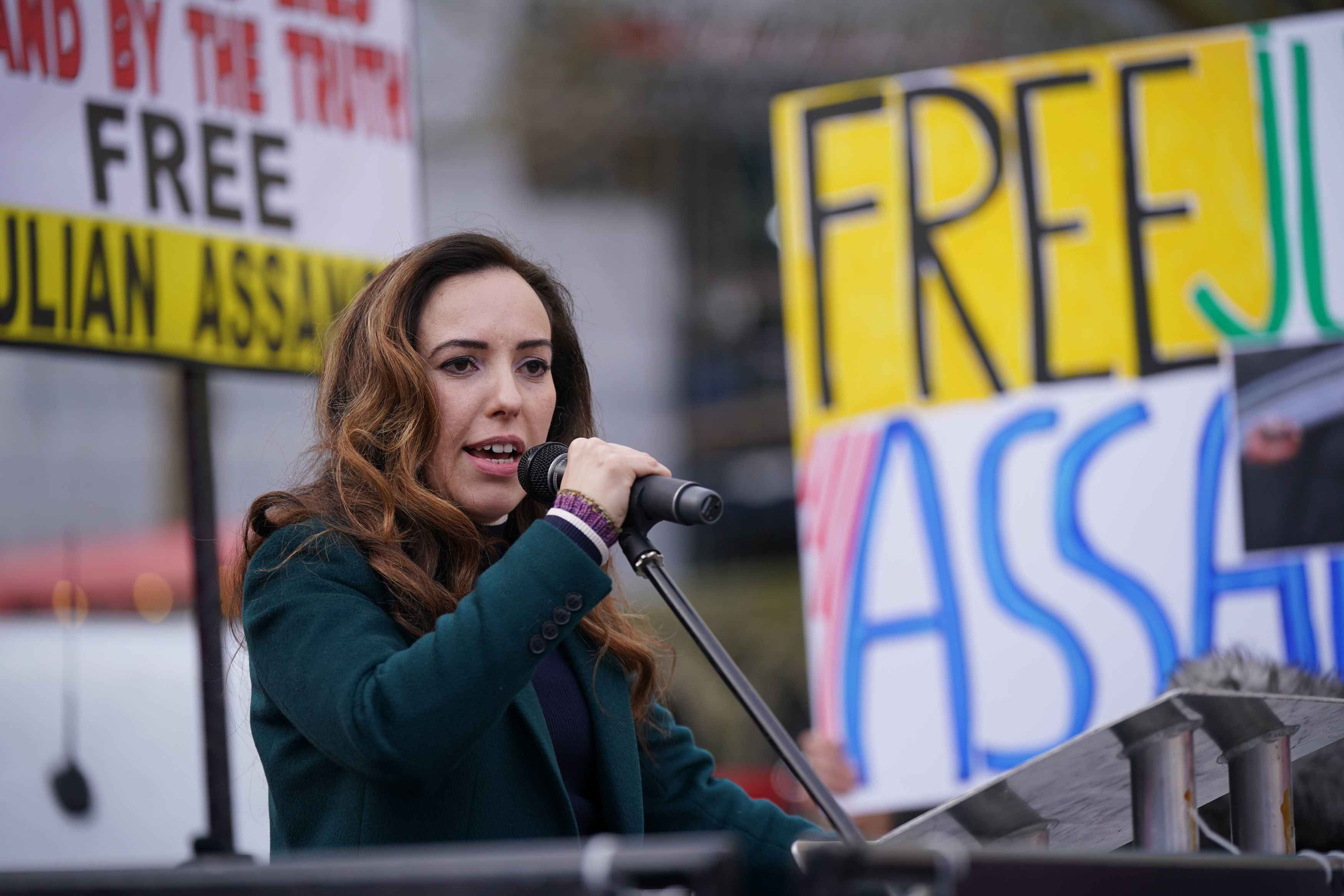
However the US authorities are opposing Assange’s bid for an appeal, telling the court his case is “unarguable” and should not be allowed to proceed to a full hearing.
James Lewis KC, for the US, said in written submissions that Assange’s conduct is “consistently and repeatedly misrepresented” by him in the appeal bid.
The barrister described the amount of classified material provided to Assange as “unprecedented”, adding: “The appellant threatened damage to the strategic and national security interests of the United States and put the safety of individuals at serious risk.”
Mr Lewis, who is expected to make oral arguments on behalf of the US on Wednesday, added that the original judge ruled Assange was not being prosecuted for political reasons but “because he is alleged to have committed serious criminal offences”.
He added that it was “simply not credible” that a journalist would be immune from criminal prosecution in these circumstances.
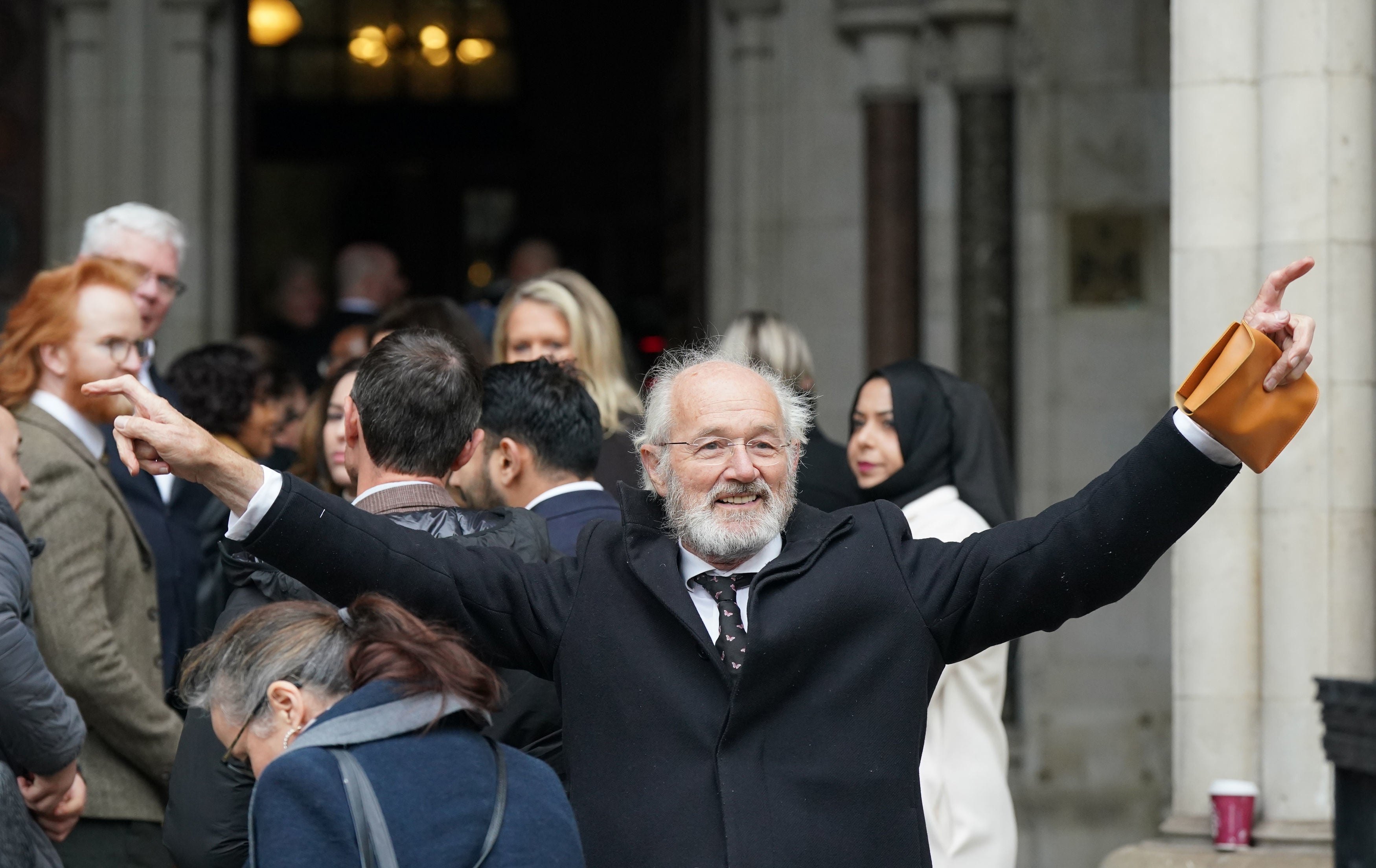
At a press conference last week, Mr Assange’s wife Stella warned the outcome of the appeal bid is life or death for her husband, who has deteriorated in prison where he spends 22-hours a day in confinement.
The Australian national has been in high security Belmarsh prison in south-east London since he was removed from the Ecuadorian embassy in 2019.
Ms Assange, who met her husband while working as part of his legal team, said: “The situation is extremely grave. He could be on a plane within days.
“His health is in decline, mentally and physically. His life is at risk every single day he stays in prison, and if he’s extradited, he will die.
“But it’s not just about being extradited. Julian should never have been put in prison in the first place.”
WikiLeaks editor-in-chief Kristinn Hrafnsson said the extradition would set a precedent that has “dark and serious implications for press freedom all around the world”.
The hearing before Dame Victoria Sharp and Mr Justice Johnson continues.
Join our commenting forum
Join thought-provoking conversations, follow other Independent readers and see their replies
Comments